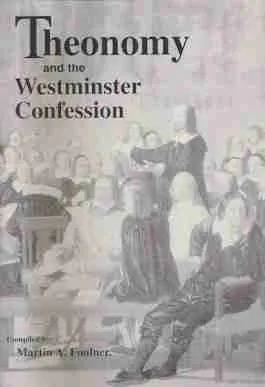Confessional Theonomy: A Brief Response to Luke Saint

2 January 2025
On the most recent episode of the Think and Reform podcast, Luke Saint responded to my article critiquing his idea of Lancastrian Theonomy. Despite proposing a number of very good ideas, Saint’s response to my article is filled with errors, and hence I believe it merits this brief response.
He ridicules my claim that he wants to abolish the office of civil magistrate. He defends himself by stating that he merely claimed he wants to see the office of politician abolished, not the civil magistrate. He distinguishes the civil magistrate from the politician, asserting that the magistrate provides justice to citizens by ruling as judges, rather than maintaining law and order.
This type of distinction between politician and civil magistrate is, however, a modern one, unknown to the Reformed Confessions. The Second Helvetic Confession of 1564 includes among the duties of civil magistrates the maintenance of public peace and order. This includes “govern[ing] the people entrusted to him by God with good laws made according to the Word of God,” rooting out lies and superstition, and even declaring war by decree. The confession condemns the Anabaptists who deny that magistrates may wage war. Since declaring war can only be done through decrees or legislation that affect the magistrate's subjects, it is clear that decrees and legislation are integral to the historical Reformed understanding of the duties of the civil magistrate. Saint’s claim that civil magistrates have no role in issuing decrees and are limited to judging is, therefore, foreign to the Reformed tradition.
At the 23:14 mark in the podcast, Saint states that he agrees with me that “we should be writing and reforming our constitutions to conform to the Bible.” However, the problem is that writing and reforming constitutions are actually acts of legislation.
Regarding my interpretation of Deuteronomy 4 and 12 in light of Revelation 22: this is simply a basic application of the principle of analogia scriptura, the principle that biblical texts must be interpreted by others. Saint’s claim that “I don’t go to Revelation to understand Deuteronomy” is therefore very much unorthodox, given that much of the New Testament (including Jesus’ ministry) is actually dedicated to explaining and clarifying the Old Testament. Of course, all of this does not imply that Old Testament believers failed to understand these passages. In fact, that King David’s understanding of these passages accords with my own is evidenced by the text I cited in my first article, 1 Samuel 30:25.
Saint, however, argues that 1 Samuel 30:25 nowhere states that God approved of David’s legislation regarding the division of spoils among those who participated in battle and those who did not. However, this argument overlooks that David’s legislation directly countered what the text itself calls the plans of “wicked men” (1 Samuel 30:22), who sought to keep all the spoils for themselves. Moreover, Numbers 31:27 records God commanding Moses to divide the spoils of the war against the Midianites “between them that took the war upon them, who went out in battle, and between all the congregation.” David’s law in 1 Samuel 30:25 is therefore based upon a principle derived from God’s command regarding the Midianite war, which, through application in a new context, is codified through legislation. In short, since David’s decree aligns perfectly with God’s will as revealed in Numbers 31:27 and constituted a response aimed at addressing what the text itself expressly calls wickedness in I Samuel 30:22, basic logic necessitates that his legislation mentioned in 1 Samuel 30:25 cannot be considered unjust. Furthermore, the Bible never commands us to obey unjust laws that contradict God's will, and yet in 1 Peter 2:13 we are commanded to submit to “every ordinance of man for the Lord’s sake.” It therefore follows that legislating, if done in accordance with the principles of God’s Law, is not unjust.
Saint also argues that the counter-revolutionary philosopher Joseph De Maistre’s claim that a constitution concerns laws that are fitting for a particular nation, “given its population, its customs, its religion, its geographical situation, its political relations, its wealth, and its good and bad qualities” fully accords with communism. I think he really needs to read what the Communist Manifesto says about national distinctions and cultural diversity.
Saint’s argument that overfishing is not a sin if we are unaware that we are doing it is true but irrelevant. I never argued this. Nor did I ever argue that killing animals is immoral. There are ways of determining, with great accuracy, if and when a certain species’ population is threatened. Saint misrepresents my argument here.
While I appreciate Saint’s reaction to my article, the fact of the matter is that we have very real disagreements with regard to the biblical, historic Reformed faith as codified in the Reformed confessions and as such we adhere to two different schools of theonomy.